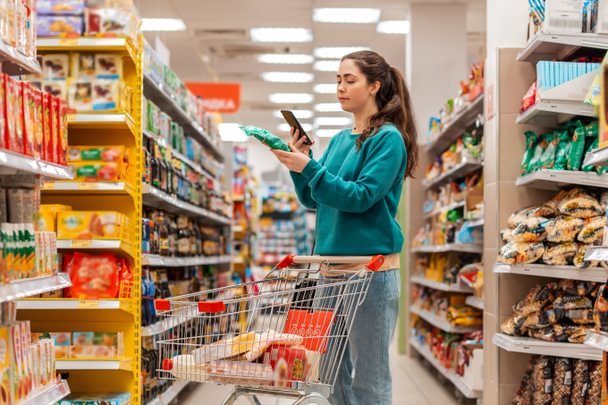July 16, 2025 Industry news
The UK food system is entering a period of profound change. The Government’s Good Food Cycle is a new ten-point plan that sets out to reshape how food is produced, distributed and consumed. It aims to deliver healthier diets, thriving food businesses, environmentally sustainable farming and stronger, more resilient supply chains.
At its heart, the plan recognises that food is not just about what we eat. It is about the health of our people, the strength of our economy and the future of our planet. From tackling rising rates of diet-related disease and food poverty to cutting greenhouse gas emissions and protecting biodiversity, the Good Food Cycle seeks to address some of the most pressing food challenges facing the UK.
The ten outcomes include making healthy food more affordable, creating food environments that encourage better choices, supporting innovation and skills in the food sector, and building supply chains that are transparent and able to withstand future shocks. Together, they represent a vision for a food system that is fairer, greener and fit for the future. But if we are serious about achieving these outcomes, we need to focus on one thing that connects every part of the system: trusted, consistent data.
At GS1 UK, we see this as a generational opportunity to fix the foundations of how food flows through the economy and reaches people’s plates. Data is the invisible infrastructure that supports smarter choices, fairer markets and more sustainable growth. Our role is to help ensure information flows freely and reliably across the supply chain, from farm to fork, and GS1 standards have the potential to play a key role in delivering many of the Good Food Cycle’s ten outcomes.

1. Healthier and more affordable food
Improving diets and making healthy food available to everyone starts with clear, reliable information.
Shoppers want to know what’s in their food, where it comes from and whether it aligns with their values. Reformulation, clearer labelling and transparent marketing all depend on verified data moving seamlessly through the supply chain.
GS1 standards give manufacturers, retailers and regulators a common language to ensure nutritional and ingredient information is accurate and accessible wherever it is needed.
2. Healthier food environments
The choices people make about what to eat are strongly influenced by the environments around them. From how products are placed and promoted in shops to the information available at the point of sale, small shifts can encourage healthier and more sustainable decisions. Creating food environments that make the healthy choice the easy choice depends on access to accurate, reliable information throughout the food system.
Better data enables businesses to reformulate products, improve labelling and design retail spaces that guide consumers towards healthier options. For shoppers, transparency builds trust and empowers them to make decisions that align with their health and values. With the right information in place, healthier and more sustainable food can move from being an aspiration to becoming part of everyday life.
3. Access for all
For too many people, healthy and appealing food is still out of reach. Reducing reliance on emergency food parcels and addressing affordability for vulnerable groups depends on understanding where the gaps are.
With shared standards, government and charities can collect and analyse this data consistently. This helps them make better decisions about how and where to act.
4. A thriving food sector
Food businesses are at the heart of the UK economy. For small and medium-sized enterprises, fair and transparent supply chains are essential to succeed.
GS1 standards create a level playing field. They enable businesses of all sizes to share product information efficiently, demonstrate compliance and access new retail and online markets.
With a common language for data, companies can innovate and grow while meeting the expectations of consumers and regulators.
5. Building a skilled workforce
Attracting and retaining talent is critical to the long-term strength of the food system. From farming and manufacturing to logistics and retail, the sector relies on people with a wide range of skills to keep it running.
Addressing skills gaps and creating clear career pathways requires collaboration between employers, educators and policymakers. By working together, they can ensure the food sector is seen as an attractive place to work and that opportunities are available in every part of the country.
6. Environmentally sustainable supply chains
Protecting the environment, cutting emissions and reducing waste all depend on businesses having access to reliable information about their impact. From farm inputs to packaging and transport, companies need a clear and consistent way to measure and share their progress.

GS1 standards provide the framework to capture sustainability data in a way that is trusted and widely understood.
By using a common approach, businesses can track key metrics such as materials, emissions and waste, and share this information with supply chain partners, regulators and consumers.
This consistency allows organisations to demonstrate their efforts more clearly. It also gives consumers the confidence to make informed choices about the products they buy, supporting a food system that is healthier, fairer and more sustainable.
7. Sustainable trade and exports
As the UK strengthens its trade relationships and promotes British food and drink abroad, producers need to demonstrate that they meet high environmental and quality standards.
Sharing accurate and trusted information across borders helps build confidence in UK exports and opens new opportunities for growth.
8. Resilient domestic production
Strengthening UK-based production of healthy, sustainable food is critical for reducing reliance on imports and building greater food security. Growing more fruit, vegetables and other staples closer to home can help to shorten supply chains, reduce environmental impact and ensure a steady supply even during times of global disruption.
To achieve this, growers and producers need better visibility across the supply chain. Access to timely, accurate data allows them to understand changing patterns in demand, manage resources efficiently and respond quickly to risks. A more resilient domestic food system benefits everyone – from farmers and food businesses to consumers and communities.
9. Preparedness for future shocks
Recent years have shown how vulnerable food systems can be to disruption. Climate events, global conflicts and supply chain pressures have all tested resilience.
Building stronger systems starts with better information. With GS1 standards, producers, manufacturers and retailers can share real-time data and respond quickly to risks, keeping food flowing even under pressure.
10. Celebrating UK food cultures
Regional and local food traditions are central to the UK’s identity. They bring communities together, support tourism and drive local economies.
Provenance data, underpinned by shared standards, helps to tell these stories in a way that builds pride and trust in British food.

Building a food system that works for all
Helping people to cook and eat well means more than education. It depends on giving them access to clear, reliable information.
From allergens and nutrition to provenance and sustainability, consumers want to understand their food and its impact on health and the planet.
Trusted data is essential to make this possible. As mandatory reporting on nutrition, waste and emissions becomes reality, businesses need a shared framework to avoid fragmented and burdensome systems.
GS1 standards provide a proven solution. Open, neutral and globally recognised, they enable consistent and reliable product information to flow across supply chains. This improves traceability, simplifies operations and supports innovation.
The next generation of barcodes, QR codes powered by GS1, are already showing what is possible. With one scan, shoppers can access verified details about ingredients, provenance and environmental impact. Nearly half of UK retailers are investing in this technology, and more than half of consumers expect to access sustainability information digitally.
Delivering the Good Food Cycle vision requires collective action. Government, industry and civil society must work together to create a future-ready data infrastructure. At GS1 UK, we are ready to play our part in building a food system that earns trust, drives growth and delivers healthier, fairer and more sustainable outcomes for everyone.



